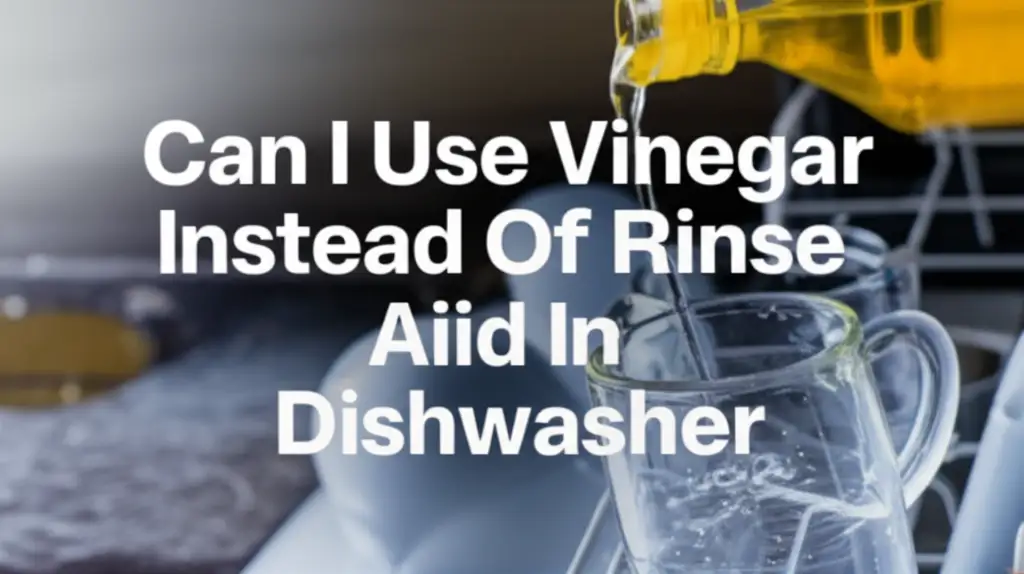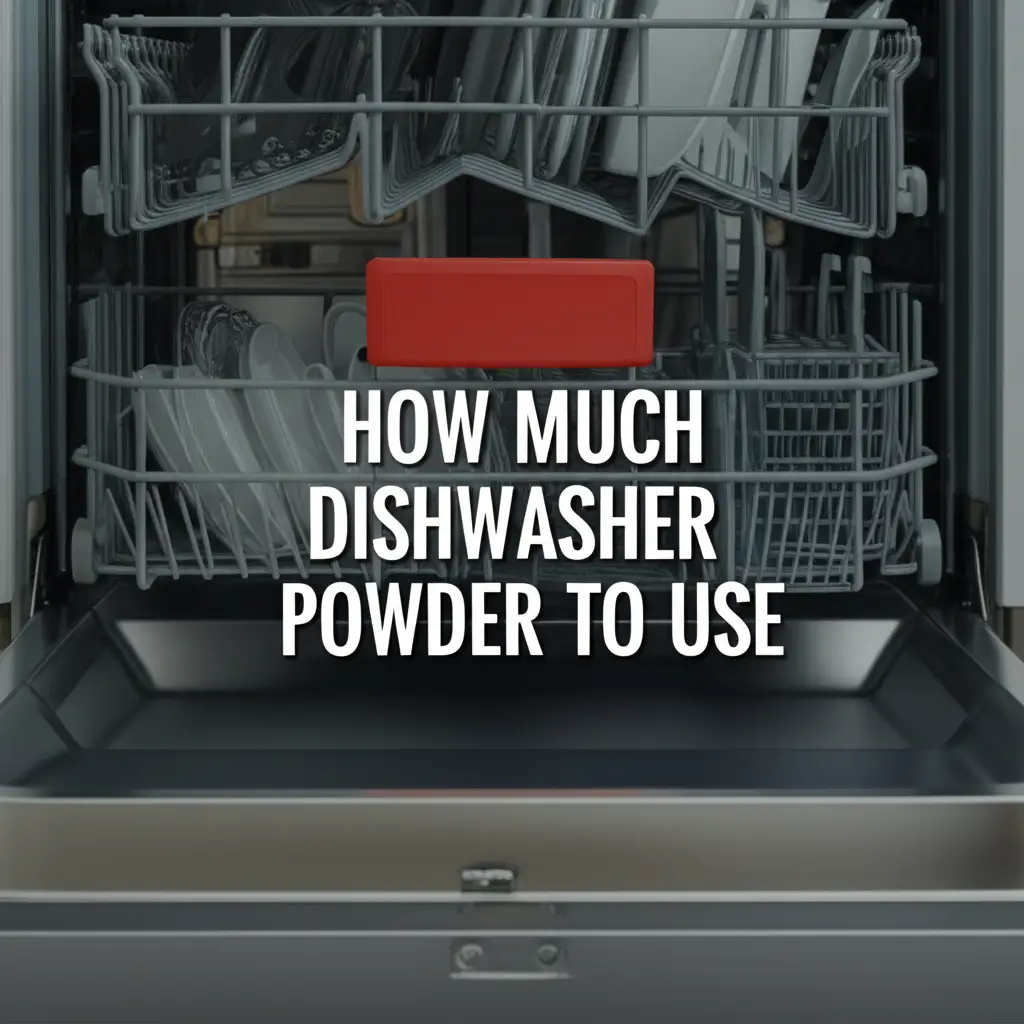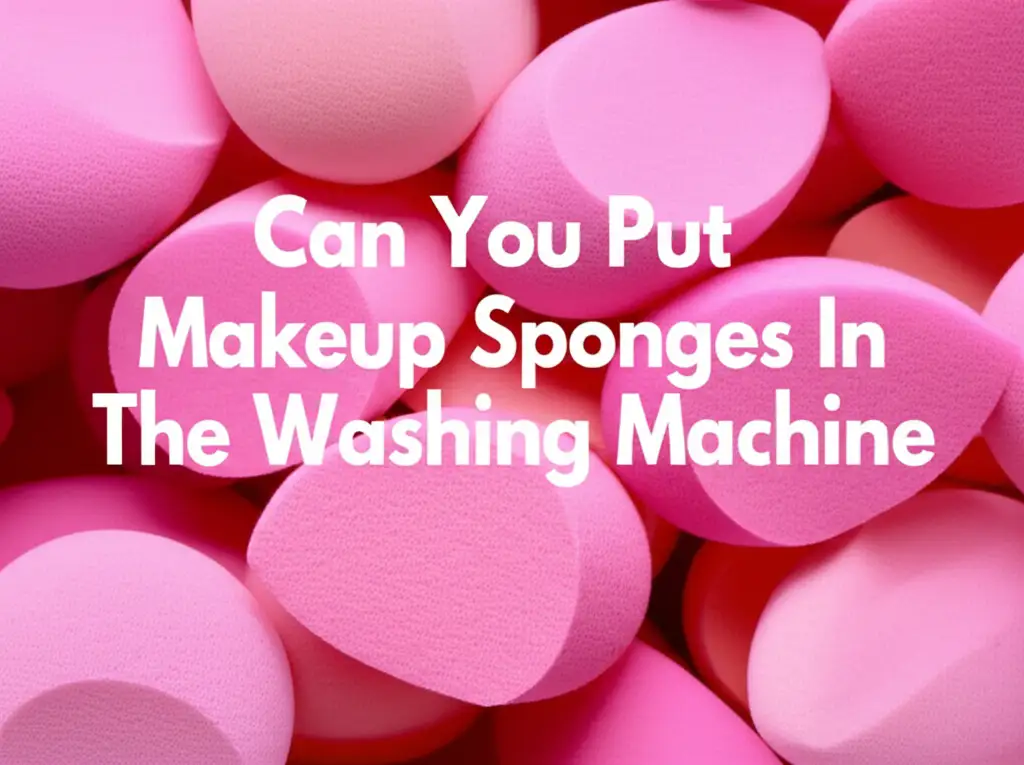· Elira Thomsen · Cleaning Tips · 14 min read
Can I Use Vinegar Instead Of Rinse Aid In Dishwasher

Unlock Sparkling Dishes: Can I Use Vinegar Instead Of Rinse Aid In Dishwasher?
Do your freshly washed dishes sometimes come out of the dishwasher with annoying spots or cloudy film? I know the frustration of opening the dishwasher door, hoping for spotless glassware, only to find water marks. Many of us wonder about natural alternatives to commercial products. A common question I hear is, “Can I use vinegar instead of rinse aid in dishwasher?” This query often comes from a desire for more natural cleaning or to save money.
In this article, we explore the effectiveness of vinegar as a rinse aid substitute. I will guide you through how vinegar works in your dishwasher. We will look at its benefits and any potential downsides. You will also learn how to use it correctly for the best results. Get ready to learn simple ways to achieve shinier dishes.
Takeaway
- Vinegar can effectively act as a natural rinse aid.
- It helps reduce water spots and film on dishes.
- Use white vinegar in your dishwasher’s rinse aid dispenser or a bowl.
- Vinegar offers an eco-friendly and budget-friendly alternative.
- Ensure regular dishwasher maintenance for best results.
Yes, you can use white vinegar instead of rinse aid in your dishwasher. Its acidic nature helps to break down mineral deposits from hard water. This action prevents water spots and streaks on your dishes and glassware. Vinegar also helps to keep your dishwasher clean in the process.
Understanding Dishwasher Rinse Aid: What It Does
Have you ever wondered what rinse aid actually does in your dishwasher? Many people skip it or do not understand its purpose. Rinse aid is a specialized liquid designed to improve your dishwasher’s drying and spotting performance. It works in a very clever way.
Commercial rinse aids contain chemicals called surfactants. These surfactants reduce the surface tension of water. Imagine water clinging to your dishes in droplets; this creates spots. By reducing surface tension, water forms a thin sheet instead. This sheeting action helps water run off the dishes more easily. Your dishes dry faster and come out without water spots, streaks, or film.
Without rinse aid, especially in areas with hard water, minerals in the water can dry onto your dishes. This leaves behind unsightly white spots or a cloudy film. Rinse aid helps to counteract this effect. It promotes quicker drying and a clearer finish. It also helps prevent water from beading up. When water beads, it leaves behind concentrated mineral deposits when it evaporates. Rinse aid helps water flow off the dishes, taking those minerals with it. This leads to sparkling, ready-to-put-away dishes. If you are curious about specific dishwasher models, knowing how to fill rinse aid in Kenmore dishwasher can give you a better grasp of the dispenser mechanism.
The Power of Vinegar: Why It Works in Your Dishwasher
Vinegar is a common household item with many cleaning uses. Its strength comes from its acetic acid content. This acid is the key to why it works so well in your dishwasher. Acetic acid is mild, but powerful enough to tackle various cleaning challenges.
When you add vinegar to your dishwasher, the acetic acid goes to work. It reacts with and dissolves mineral deposits left by hard water. These minerals are often the culprits behind spots and cloudy film on dishes. By dissolving them, vinegar helps prevent them from adhering to your dishes. It also works by lowering the water’s surface tension, similar to how commercial rinse aids function. This allows water to sheet off your dishes more effectively.
Using vinegar offers several benefits beyond just clean dishes. It is a natural product, meaning you introduce fewer synthetic chemicals into your home. It is also very affordable, often costing less than commercial rinse aids. Furthermore, vinegar helps clean your dishwasher itself. It can remove grime, soap scum, and mineral buildup from the appliance’s interior. This keeps your dishwasher running more efficiently. It also leaves it smelling fresh.
How to Properly Use Vinegar as a Dishwasher Rinse Aid Substitute
Using vinegar as a rinse aid is simple. You just need to know the right way to apply it. The goal is for the vinegar to be dispensed during the rinse cycle. This ensures it helps the water sheet off your dishes just before drying. There are two main methods to use.
Using Vinegar in the Rinse Aid Dispenser
This is the most common and effective method. Your dishwasher has a dedicated rinse aid dispenser. This dispenser usually releases the liquid automatically during the rinse cycle.
- Locate your dishwasher’s rinse aid dispenser. It is typically a small compartment located near the detergent dispenser.
- Open the dispenser cap.
- Pour white vinegar into the dispenser until it reaches the full line. Do not overfill it.
- Close the cap securely.
- Run your dishwasher as you normally would. The machine will release the vinegar at the appropriate time.
Using the dispenser ensures the vinegar is released at the optimal moment. This method gives you consistent results. It mimics the function of commercial rinse aid most closely. If you need more general advice on adding cleaning agents, understanding where to put vinegar in dishwasher to clean can also be helpful.
Using Vinegar in a Bowl on the Top Rack
If your dishwasher does not have a rinse aid dispenser, or if you prefer a different approach, you can use a small bowl. This method is also very simple and effective.
- Find a small, dishwasher-safe bowl. A ramekin or a small measuring cup works well.
- Pour about half a cup of white vinegar into the bowl.
- Place the bowl upright on the top rack of your dishwasher. Make sure it is secure and will not tip over during the wash cycle.
- Place the bowl so that it is not directly under any spray arm nozzles.
- Run your dishwasher’s normal cycle. As the water sprays, it will mix with the vinegar in the bowl. This distributes the vinegar throughout the dishwasher during the rinse phase.
Both methods are effective. The dispenser method is more precise regarding timing. The bowl method is a good alternative if your dispenser is broken or if you prefer a simpler approach. Always use plain white vinegar for these purposes. Do not use apple cider vinegar or other types, as they can leave residues or odors.
Pros and Cons of Using Vinegar in Your Dishwasher
Using vinegar as a rinse aid substitute offers distinct advantages and some minor drawbacks. It is important to weigh these before making it your regular practice. My experience shows that for many homes, the benefits far outweigh the cons.
Advantages of Using Vinegar
First, it is incredibly cost-effective. White vinegar is much cheaper than commercial rinse aid products. A large bottle lasts a long time. This makes it a great choice for budget-conscious households. Second, vinegar is a natural, non-toxic substance. You reduce the amount of synthetic chemicals introduced into your home and washed down the drain. This is better for your family and the environment.
Third, vinegar excels at fighting hard water. The acetic acid dissolves mineral deposits like calcium and magnesium. This not only prevents spots on your dishes but also cleans the inside of your dishwasher. It can help descale spray arms, filters, and heating elements. This can improve your dishwasher’s overall performance and lifespan. Finally, vinegar helps eliminate odors. Dishwashers can sometimes develop musty smells. A regular vinegar rinse can keep your appliance smelling fresh and clean.
Disadvantages of Using Vinegar
One potential drawback is its effectiveness in extremely hard water areas. While vinegar works well for most hard water conditions, some very hard water might require a stronger solution. Commercial rinse aids might perform better in such extreme cases. Another concern sometimes raised is about rubber seals. Some worry that vinegar might degrade dishwasher seals over time. However, diluted white vinegar, used as a rinse aid, is generally safe for modern dishwasher components. The amount used and its brief contact time during the rinse cycle are usually too minimal to cause damage.
Lastly, a temporary vinegar odor might be noticeable immediately after the cycle. This smell usually dissipates quickly as the dishes dry. It does not transfer to the food or leave a lasting scent on the dishes themselves. Most people find this a small trade-off for cleaner, spot-free results.
Addressing Common Concerns and Myths About Vinegar in Dishwashers
When considering using vinegar in your dishwasher, you might hear various warnings or myths. I want to address these common concerns directly. It is important to separate facts from misinformation to make informed choices for your home. My goal is to assure you that vinegar can be a safe and effective option.
One common myth suggests that vinegar will damage your dishwasher’s internal components, especially rubber seals or hoses. This is largely untrue for modern dishwashers and proper use. The white vinegar used is dilute (typically 5% acetic acid). It is also introduced during the rinse cycle, meaning its contact with parts is brief. Regular use of undiluted vinegar or mixing it with certain other cleaners is where risks might arise. For example, never mix vinegar with bleach. This creates dangerous chlorine gas. However, as a standalone rinse aid, white vinegar is considered safe by appliance manufacturers and experts alike. For context, using vinegar in other appliances, like a washing machine, is also widely accepted as safe for similar reasons. Is it ok to put vinegar in your washing machine is another common question with a positive answer.
Another concern is that your dishes will smell like vinegar. While a faint vinegar smell might be present immediately after the cycle, it almost always dissipates completely as the dishes cool and dry. The heat from the drying cycle helps evaporate any residual scent. I have personally never had food taste or smell like vinegar after washing. If you notice a lingering smell, it might indicate you are using too much vinegar or not running a hot enough rinse cycle.
Some people also ask if vinegar is okay for all types of dishwashers. Generally, yes. Most modern dishwashers are designed to handle various cleaning agents. They are also built with materials resistant to mild acids. However, it is always a good idea to consult your appliance manual. Check for any specific warnings or recommendations from the manufacturer. For nearly all home dishwashers, white vinegar as a rinse aid substitute is a perfectly acceptable and safe practice.
When Vinegar Might Not Be Enough: Alternative Solutions
While vinegar is a fantastic natural rinse aid, there are times when it might not deliver the perfect sparkle. This usually happens in areas with extremely hard water. Hard water contains very high levels of minerals. These minerals can be difficult for vinegar alone to fully tackle. In such cases, you might notice some residual spotting or cloudiness.
If vinegar is not giving you the results you want, consider a few other strategies. First, you could try using a water softener for your home. A whole-house water softener reduces mineral content in all your water. This benefits not only your dishwasher but also other appliances and even your skin. This is a bigger investment but offers a complete solution.
Second, you might look into specific commercial rinse aids designed for extreme hard water. Some brands offer formulations with stronger sequestering agents. These agents bind to minerals, preventing them from depositing on dishes. You can also explore other natural additives. Citric acid, for example, is a stronger acid than vinegar. It is sometimes sold as a powder for dishwasher cleaning. You can add a tablespoon to your detergent dispenser along with your regular detergent. It provides an extra boost against mineral buildup.
Regular deep cleaning of your dishwasher can also make a big difference. Even with rinse aid, mineral deposits and food particles can accumulate over time. Running an empty cycle with a dedicated dishwasher cleaner, or even with just a cup of white vinegar, can refresh your appliance. Sometimes, I even use a bit of OxiClean in my dishwasher for a really thorough clean when things feel extra grimy. This helps the rinse aid work better by ensuring a cleaner environment for your dishes.
Maintaining Your Dishwasher for Optimal Shine
Achieving sparkling dishes goes beyond just using the right rinse aid. Proper dishwasher maintenance is crucial for optimal performance. A well-maintained dishwasher cleans more effectively and lasts longer. I have found that a few simple habits make a big difference.
First, regular cleaning of your dishwasher itself is key. Food particles, grease, and mineral deposits can build up over time. This buildup clogs spray arms, filters, and drains. It also leads to poor wash results. Make it a habit to clean your dishwasher filter every few weeks. You can also run an empty cycle with a dishwasher cleaner, or simply a cup of white vinegar, once a month. This helps remove grime and keeps water flowing freely.
Second, proper loading of your dishwasher is very important. Do not overcrowd the racks. Overloading prevents water and detergent from reaching all surfaces. It also hinders proper rinsing and drying. Make sure dishes are not blocking the spray arms. Bowls and plates should face the center of the dishwasher. Glasses should be angled for better drainage. This ensures every item gets a thorough wash and rinse.
Third, use the correct amount of detergent. Too little detergent might not clean effectively. Too much can lead to excessive suds and residue. The amount needed depends on your water hardness and the soil level of your dishes. Check the detergent packaging for guidelines. If you are unsure, our guide on how much dishwasher powder to use can provide specific advice. Using high-quality detergent also makes a difference.
Finally, check your water temperature. Your dishwasher needs hot water to activate detergent and effectively clean and rinse. Most dishwashers are designed to heat water to an optimal temperature. However, ensure your home’s hot water heater is set to at least 120°F (49°C). This helps the detergent dissolve and ensures sanitization. Also, consider the cycle you choose. While a quick wash saves time, does quick wash use less water dishwasher might mean less effective cleaning for heavily soiled loads. Choosing the appropriate cycle for the load helps ensure the best cleaning and rinsing performance. By following these steps, your dishwasher will run more efficiently. Your dishes will come out cleaner and shinier, every time.
FAQ Section
Is white vinegar safe for dishwashers?
Yes, white vinegar is generally safe for modern dishwashers. Its mild acidity (around 5%) is not strong enough to corrode stainless steel components or damage rubber seals with regular use in the rinse cycle. Many appliance manufacturers even recommend vinegar for cleaning the dishwasher itself.
How often should I use vinegar as rinse aid?
You can use vinegar as a rinse aid substitute every time you run your dishwasher. For best results, replenish the rinse aid dispenser with white vinegar whenever it is empty. If you use the bowl method, add half a cup to a bowl before each cycle.
Will vinegar damage my dishwasher’s seals?
No, white vinegar used as a rinse aid will not damage your dishwasher’s rubber seals or other internal components. The concentration is too low, and contact time is too brief. Avoid mixing vinegar with bleach, as this creates harmful gas.
Can I mix vinegar with dishwasher detergent?
It is not recommended to mix vinegar directly with your dishwasher detergent in the same dispenser. Vinegar is an acid, and some detergents contain alkaline ingredients. Mixing them can neutralize their effectiveness. Instead, put vinegar in the rinse aid dispenser or a separate bowl.
What kind of vinegar should I use?
You should only use plain white vinegar (distilled white vinegar) for your dishwasher. Other types, like apple cider vinegar or balsamic vinegar, contain sugars, colors, or other residues. These can leave streaks, film, or odors on your dishes and inside your dishwasher.
Why are my dishes still spotty with vinegar?
If your dishes are still spotty with vinegar, your water might be extremely hard. The vinegar may not be strong enough for the high mineral content. Try increasing the amount of vinegar slightly, or consider a whole-house water softener. You might also need to clean your dishwasher’s filter.
Conclusion
I hope this article helps you understand the great benefits of using vinegar in your dishwasher. You now know you absolutely can use vinegar instead of rinse aid in dishwasher. It is a simple, effective, and budget-friendly alternative. It tackles hard water spots and leaves your dishes sparkling clean. Plus, it helps keep your appliance fresh.
Embracing vinegar means less exposure to synthetic chemicals in your home. It also contributes to more eco-friendly cleaning practices. While commercial rinse aids have their place, vinegar offers a natural path to shiny results. Give it a try for yourself. See how this common pantry item transforms your dishwashing routine. Your dishes will thank you for it! Explore other natural cleaning solutions to make your home cleaner and greener.
- dishwasher cleaning
- natural rinse aid
- vinegar uses
- hard water stains
- streak-free dishes
- eco-friendly cleaning
- DIY dishwasher





